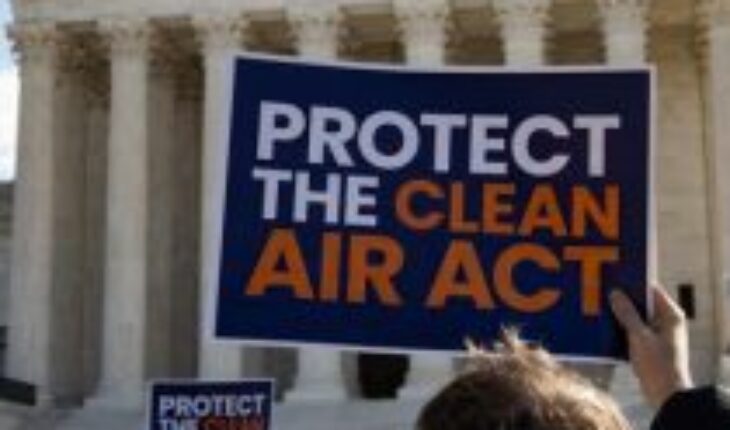With landmark decisions on abortion and climate protection, the supreme court’s latest session has been one of the most momentous in the U.S. This is what lies ahead.
U.S. Chief Justice John Roberts announced that the next session will begin on Oct. 3. The nine justices have made a series of decisions that have caused quite a stir inside and outside the U.S., such as restricting the Environmental Protection Agency’s authority to regulate greenhouse gas emissions, ruling that states cannot impose strict laws on the carrying of firearms in public. and to nullify the constitutional right to abortion, reversing the decision made in the landmark Roe v. Wade case of 1973. Following the overthrow of the federal right to terminate pregnancy, several states have already instituted an abortion ban.
The repeal of Roe v. Wade marks the end of an era in America.
Law change to reduce black representation
Now, the Supreme Court will study two cases on the authority of states in electoral processes. In Merrill v. Milligan, the court will have to decide whether Alabama’s restructuring of its seven electoral districts violates the Voting Rights Act. If the justices decide in favor of the Republican reform plan, it would put the majority of the state’s black voters in a single district. Even though African Americans make up more than a quarter of Alabama’s population, their vote would only matter for one of the state’s seven House seats. Traditionally, black Americans tend to vote Democratic.
In Moore v. Harper, the court will also have to decide the legality of a redrawn map of electoral districts, this time in North Carolina.
Attempt to further restrict access to universities
Because of centuries of racism at all levels, some U.S. universities admit a certain number of non-white students. This racially sensitive admissions process is called “affirmative action,” and is based on the idea that many non-white children do not have the same access to educational opportunities growing up as their white counterparts. The Supreme Court is set to rule on two cases brought by the conservative NGO Students For Fair Admissions (SFFA) against Harvard, a private university, and the University of North Carolina, a public one.
If the Supreme Court abolishes affirmative action, the number of black students at selective universities is likely to drop sharply, says New York Times journalist David Leonhardt.
Freedom of expression and anti-discrimination laws
In 303 Creative LLC v. Elenis, the Supreme Court will have to decide whether a business owner can turn away certain customers based on their personal beliefs. Lorie Smith, a website designer who offers her services through her company 303 Creative LLC, doesn’t want to create wedding websites for LGBTQ clients. Lower courts have previously ruled that his denial of same-sex clients violates his state of Colorado’s anti-discrimination laws.
If the Supreme Court rules in Smith’s favor, it would send the message that religion is a legal reason to deny service to someone.
Whatever the failures, the decisions will be historic.
Follow us on





